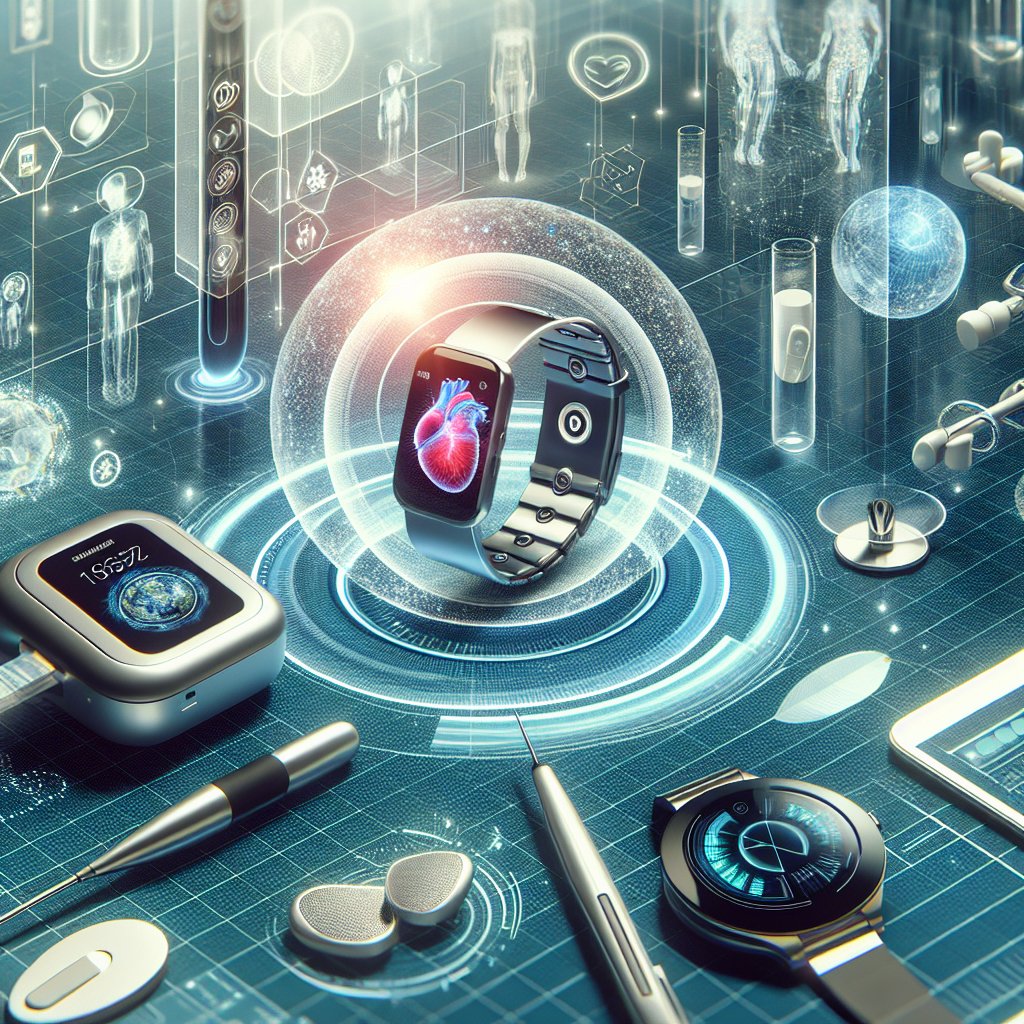Introduction
The Consumer Electronics Show (CES) 2025 once again served as a premier platform for unveiling groundbreaking advancements in health technology. This year, the focus was on integrating artificial intelligence, wearable devices, and personalized medicine to revolutionize the healthcare landscape. From innovative medical devices to sophisticated health monitoring systems, CES 2025 highlighted how technology is bridging gaps in healthcare accessibility and efficiency.
Wearable Health Devices
One of the standout categories at CES 2025 was wearable health technology. Companies introduced next-generation wearables that go beyond fitness tracking to provide comprehensive health monitoring.
Advanced Health Trackers
Brands like Fitbit and Garmin showcased devices capable of real-time glucose monitoring, cardiovascular health tracking, and even stress level assessments. These wearables use non-invasive sensors to provide continuous health data, enabling users to make informed decisions about their well-being.
Smart Clothing
Innovative smart clothing integrated with sensors was also a highlight. These garments can monitor vital signs such as heart rate and body temperature, offering a seamless health tracking experience without the need for additional devices.
Telemedicine Advancements
Telemedicine took a significant leap forward with new technologies enhancing remote patient care. The pandemic accelerated the adoption of telehealth services, and CES 2025 showcased the next steps in this evolution.
Virtual Consultations
Enhanced virtual consultation platforms provide more interactive and immersive experiences, incorporating augmented reality (AR) to facilitate better communication between patients and healthcare providers. These platforms aim to replicate the in-person consultation experience, improving diagnostic accuracy and patient satisfaction.
Remote Monitoring Systems
Advanced remote monitoring systems were introduced, allowing doctors to track patients’ health metrics in real-time. These systems use IoT-enabled devices to collect data and provide actionable insights, ensuring timely interventions and personalized care plans.
AI in Healthcare
Artificial intelligence continues to be a driving force in healthcare innovation, with CES 2025 highlighting several AI-powered solutions designed to enhance medical diagnostics and treatment.
Predictive Analytics
AI-driven predictive analytics tools can analyze vast amounts of medical data to identify potential health risks before they become critical. These tools assist healthcare professionals in making proactive decisions, improving patient outcomes.
AI-Powered Diagnostics
Machine learning algorithms have been developed to interpret medical images with exceptional accuracy. These AI-powered diagnostics tools can detect anomalies in X-rays, MRIs, and CT scans, aiding radiologists in early disease detection.
Personalized Medicine Technologies
Personalized medicine gained significant attention, with technologies tailored to individual genetic profiles and health data.
Genomic Sequencing
Advancements in genomic sequencing technologies allow for more precise identification of genetic variations. This enables the development of targeted therapies that address specific genetic factors underlying various diseases.
Custom Treatment Plans
Healthcare providers are leveraging personalized data to design custom treatment plans. These plans consider a patient’s unique genetic makeup, lifestyle, and health history, ensuring more effective and efficient treatments.
Mental Health Tech
Mental health technology also saw remarkable innovations, addressing the growing need for accessible mental health support.
AI Therapy Bots
AI-powered therapy bots provide immediate mental health support, offering cognitive-behavioral therapy (CBT) techniques and emotional support through conversational interfaces. These bots make mental health resources more accessible to individuals in need.
Wearable Stress Monitors
Wearable devices equipped with stress-monitoring capabilities can detect physiological signs of stress and provide real-time feedback. These devices help users manage stress through guided breathing exercises and mindfulness techniques.
Future Predictions
Experts at CES 2025 predict that health technology will continue to evolve rapidly, with further integration of AI, IoT, and personalized medicine. The future of healthcare will likely see more seamless interactions between patients and technology, enhancing preventive care and overall health management.
Expert Opinions
Dr. Emily Chen, a leading physician in digital health, commented, “The innovations showcased at CES 2025 demonstrate a significant shift towards patient-centered care. Technology is empowering individuals to take control of their health, leading to better outcomes and increased accessibility.”
Conclusion
CES 2025 highlighted the transformative potential of health technology in revolutionizing healthcare delivery. From advanced wearables to AI-driven diagnostics, the innovations presented promise to enhance patient care, improve health outcomes, and make healthcare more accessible worldwide. As these technologies continue to develop, the future of health tech looks promising, driven by continuous innovation and a commitment to improving global health.

